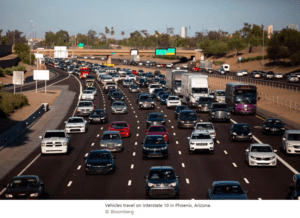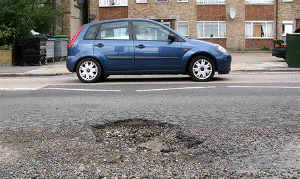Self-Driving Trucks Could Be On Texas Highways By 2023

Self-driving Trucks are already operating in Texas, but they could ditching human backup drivers by next year.Photo: Aurora
Self-driving trucks could be on Texas highways as early as 2023 due to lax autonomous vehicle regulations in the Lone Star State. The Texas Department of Transportation is taking a collaborative approach with the budding industry, which has brought self-driving semi-truck companies like Aurora and TuSimple to the state. But not everyone is happily along for the ride. Safety advocates are suspicious, claiming it’s too soon to deploy autonomous trucks on public roads.
A few autonomous vehicle companies plan to deploy these robot truckers in Texas — without any backup drivers — next year, marking a first for the industry. The companies are drawn to Texas for a few reasons, including its booming freight market, as Reuters called it. But the main reason is that Texas is letting autonomous vehicle companies set up shop without putting regulations in their way. Instead, Texas passed regulation in 2017 to spur on AV development, and prevent its cities from making stricter rules or regulations.
The autonomous vehicle bill lets companies test and deploy self-driving trucks without requiring special registration, third-party data-sharing or additional insurance. That’s quite the incentive for self-driving truck companies, which are using that Texas bill to lobby other states in the country to pass similar laws.
The Texas DOT has essentially said that as long as autonomous vehicles obey traffic laws, they are free operate in the state. In turn, that could make Texas the future home for the industry, which Reuters says could generate between $250 and $400 billion by 2030.
Safety advocates, however, are claiming that the industry rolling out robot trucks without human drivers could put people on Texas highways in danger:
“Rushing this technology to market using regular drivers as beta testers in real-world driving conditions puts potentially everyone at risk,” said Ware Wendel, executive director of consumer advocate Texas Watch.
The Texas DOT is not responding to these claims directly, but has established a task force made up of some 200 industry experts to prepare for the deployment of the self-driving trucks. The task force includes researchers, regulators, as well as employees from the self-driving truck companies and even automakers.
Reuters cites overall U.S. DOT data, noting there’s “no known case of an autonomous vehicle-caused crash in Texas, but the state leads the U.S. in yearly fatal trucking crashes.” Depending on which way you see it, that statistic can either be a major point for or against automating some of the 8,500 trucks that pass through Texas every day.
It’s difficult to know which this early on, especially with so many vested interests. To heap on to the difficulties, the National Transportation Safety Board says that NHTSA will have to standardize its approach to autonomous vehicle safety soon, as the technology scales.
While the rest of the U.S. is trying to go one way, Texas is going the opposite way. Members of the Texas task force say there’s no indication that companies are operating irresponsibly, but experts elsewhere say despite any intention to prioritize safety, companies face economic pressure to cut corners. One way to stop them cutting corners is through regulation, but yet another way to prevent being subject to regulation is moving to Texas. It’s a cycle.
Photo: Andrej Sokolow (Getty Images)





